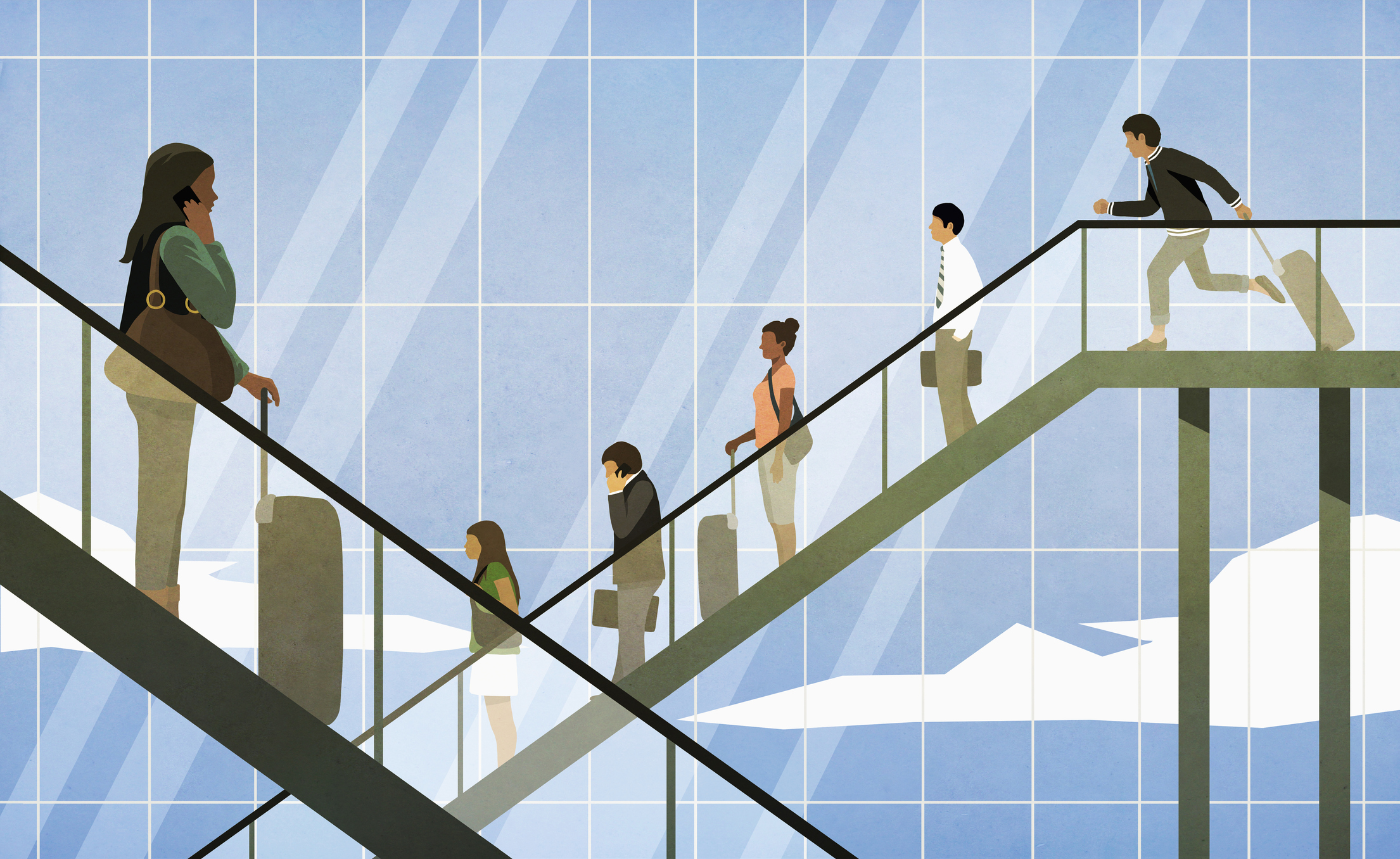
After two years of stop-and-start COVID-19 restrictions, Americans are ready to re-embrace holiday travel this year. If you’re hitting the road, expect company—lots of it. According to a recent survey from travel booking app Hopper, almost 60% of people plan to travel over Thanksgiving, the winter holidays or both.
“We have a lot of demand and fewer seats to book,” says Hayley Berg, Hopper’s lead economist.
The surge comes as travel and tourism companies are paying more for labor and other major costs like jet fuel—and passing those price hikes along to customers. Airfares have climbed by nearly 43% on a year-over-year basis, according to the October Consumer Price Index. Hotel rates were up by nearly 6.5% for the year, and experts predict this will rise further around the holidays. Hopper found that Thanksgiving hotel rates are an average of 13% higher than last year, while Christmas rates are up by 32%.
Higher prices are probably here to stay for the foreseeable future. Multiple airline industry executives have cited strong demand on recent earnings calls, and travelers seem willing to pay up: A survey by travel-planning site The Vacationer found that 16% of respondents are planning to spend more than $1,000 on Thanksgiving travel, and about 20% are planning to spend more than $1,000 taking trips over the winter holidays.
If you’re planning a get-together or getaway this holiday season, here’s what this means for you.
Fewer flights and pricier tickets
Airlines have pared back their schedules, especially to smaller destinations. This means residents of many smaller cities who used to be able to fly direct will now have to travel to a larger hub airport, says Kathleen Bangs, spokeswoman at flight-tracking company FlightAware. “The issue is it’s much, much harder for the regionals to find pilots,” she says. “They’re using bigger airplanes and they’re stuffing every seat” to maximize revenue, she adds.
Airlines are still operating fewer flights than they were before the pandemic: Compared with 2019, the number of seats available is lower by 3%, while the number of flights is down by 15%, says Henry Harteveldt, travel industry analyst and president of Atmosphere Research Group. “Airlines have been rebuilding their domestic schedules, but they’re still not operating the same number of flights they were before the pandemic,” he says.
If you can snag a seat, be prepared to pay more for it. “They’re going to start spiking very quickly,” Berg predicts. “We’re expecting airfares to peak [at] over $450 for Thanksgiving and $550 for Christmas,” she says, adding that both would be five-year record highs.
Fewer perks, more expensive rates at hotels
Around half of holiday travelers stay in hotels and home-rentals, according to a recent survey by consulting firm Deloitte. Those travelers will pay more as demand, particularly from higher-income households, stays strong.
“I think we will definitely see hotels and private rentals be very busy this holiday season especially in warm locations, ski locations and big cities,” says Michael Daher, leader of travel hospitality and services at Deloitte.
Those higher prices will be accompanied by fewer services and personal touches, though, as hotels continue to struggle with hiring. According to Jan Freitag, national director for hospitality market analytics at commercial real estate data and analytics firm CoStar, travelers are likely to find that customary daily housekeeping has been reinstated only at high-end hotels, and he says they can expect longer waits at understaffed restaurants.
Travel industry experts offer some pieces of advice to save money and make the travel experience less stressful:
More Must-Reads from TIME
- Donald Trump Is TIME's 2024 Person of the Year
- Why We Chose Trump as Person of the Year
- Is Intermittent Fasting Good or Bad for You?
- The 100 Must-Read Books of 2024
- The 20 Best Christmas TV Episodes
- Column: If Optimism Feels Ridiculous Now, Try Hope
- The Future of Climate Action Is Trade Policy
- Merle Bombardieri Is Helping People Make the Baby Decision
Contact us at letters@time.com